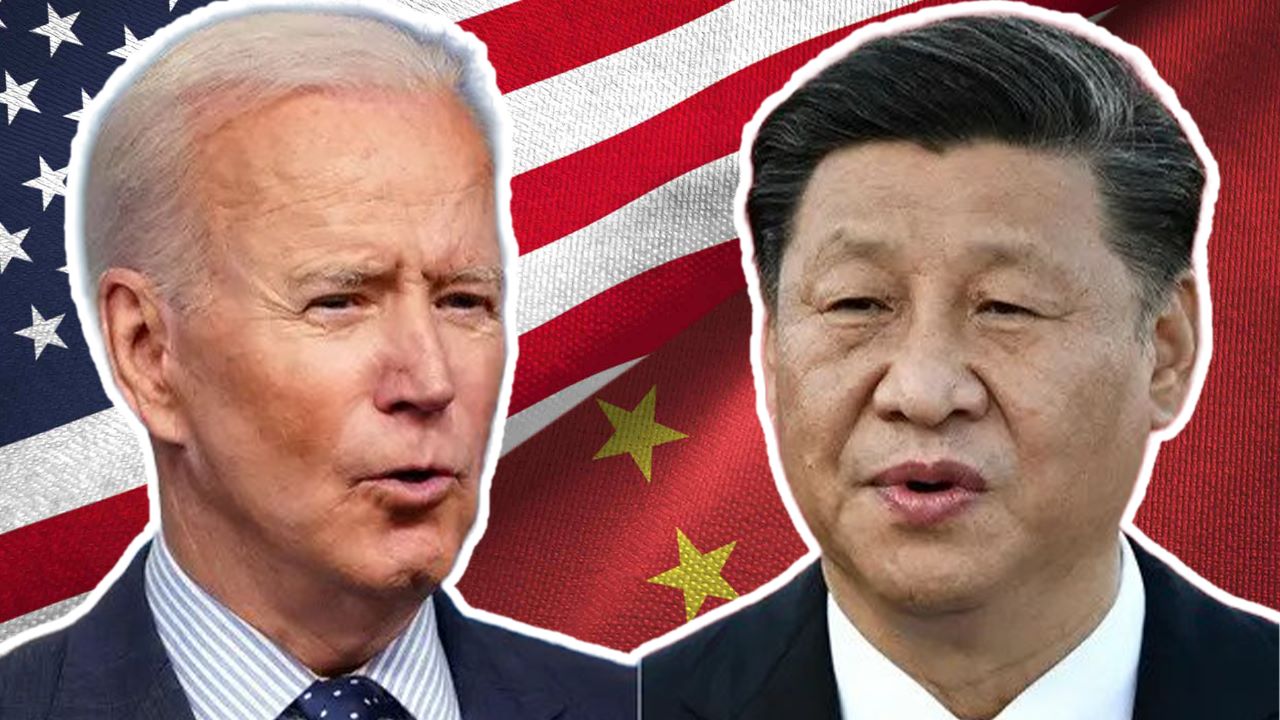After upping its ante against China by providing military aid to Taiwan under foreign military financing (FMF) reserved for sovereign nations, the US is simulating a ‘Taiwan war game’ with financial and business executives in New York on September 11 to underscore the risk associated with investing in China.
The Biden Administration has been going after China’s economic might. In August 2023, the US government announced restrictions on investments by US venture capital and private equity firms, as well as joint ventures, in Chinese artificial intelligence, quantum computing, and semiconductors.
The proposed rules have been opened for a 45-day public comment period. They will be turned into draft regulations that will take effect next year. The executive order applies to investments in the cities of Hong Kong and Macao, as well as mainland China.
The curbs on the US investments in advanced technology industries in China are done to protect national security at a time of heightened tensions with Beijing.
The US House of Representatives China committee, led by Republican Head of the panel Mike Gallagher and top Democrat Raja Krishnamoorthi, will put their heads together with representatives of investment banks, current and former executives of pharmaceutical companies, and retired four-star US military officers. The names of the participants have been kept under wraps.
In August, the panel accused the American multinational investment company BlackRock and US Equity Indexes MSCI of “unwittingly funding” groups that develop weapons for China’s People’s Liberation Army, compromising US national security.
The wargame with financial top shots will consider the economic implications of a US-China conflict over Taiwan. In April 2023, the lawmakers conducted a war game on Capitol Hill that brought attention to the fact that the US and its allies were woefully underprepared to deal with the sanctions on China and economic war with Beijing should China decide to attack Taiwan.
Following meetings with Apple chief executive Tim Cook and Disney chief Bob Iger at the beginning of 2023, Gallagher told the media that Hollywood and Silicon Valley were underestimating the odds of China making good on its threat against Taiwan.
The bipartisan delegation of the US Congress will meet other financial executives in New York to scrutinize “how American investment in China could undermine US national security. The committee will hear testimony from former chair of the Securities and Exchange Commission, Jay Clayton, and Jim Chanos, the hedge fund short seller.
Krishnamoorthi told the Financial Times that it was “important that our committee hear from the financial industry about how (Chinese Communist Party) policies are affecting Americans’ savings and investments and what Congress needs to do to help protect American investors and our national security.”
The Economics Of Conflict Over Taiwan
The US State Department in 2022 estimated that a conflict over Taiwan would cause an annual loss to the tune of US $2.5 trillion. The disruptions would be felt immediately and would be difficult to reverse. The estimate is for a blockade scenario when the conflict does not become kinetic.
The most significant global economic activity that will come to a halt is in the semiconductors field. Major chip-consuming sectors such as electronics, automotive, and computing would be hit hard.
Taiwan is the world’s 16th largest trading economy, with cumulative imports and exports valued at US $ 922 billion. Approximately US $565 billion in Taiwanese value-added trade would be at high risk of disruption from a blockade.
A conflict over Taiwan will also disrupt more than US $270 billion in trade between China and the rest of the world, even before any sanctions ARE implemented. In case of a conflict, foreign investors are likely to dump their Chinese securities holdings.
As of June 2022, foreign investors held over one trillion dollars in onshore Chinese bonds and equities, and as of September 2022, more than $775 billion in offshore Chinese equities listed in the United States.
Despite efforts to decouple the US and China, the trade between the US and China hit a record high in 2022 and rose to US $690.6 billion, according to US data. According to the US Bureau of Economic Analysis, exports to China increased by $2.4 billion to $153.8 billion, while imports of Chinese products rose by $31.8 billion to $536.8 billion.

US-China Tech War
The tech war between the US and China has been heating up, and in July, Beijing fired the warning salvo at the world’s largest economy by restricting the export of critical minerals Germanium and Gallium, useful in mobile phones, electric vehicles, nuclear energy, and other devices, including weapons.
The two minerals weaponized by China are important for semiconductors that are essential for national security. They enable the development and fielding of advanced weapons systems and control the operation of critical infrastructure.
They are fundamental to virtually every military system, including communications and navigation systems and complex weapons systems such as those deployed in the F-35 Joint Strike Fighter.
They are key to future technologies like artificial intelligence and 5G. In addition, developing advanced autonomous systems, cybersecurity, space and hypersonic, and directed energy is also dependent on semiconductor technologies.
The US government identified four fields in 2021 where Chinese dominance can prove detrimental to national security. The four fields include – semiconductor manufacturing and advanced packaging, large-capacity batteries, critical minerals and materials, and pharmaceuticals and active pharmaceutical ingredients (APIs).
- Ritu Sharma has been a journalist for over a decade, writing on defense, foreign affairs, and nuclear technology.
- She can be reached at ritu.sharma (at) mail.com




